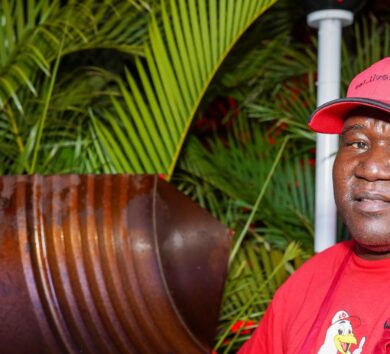

When it comes to seeking medical care, men are generally more reluctant compared to their female counterparts. As such, this places them at a greater risk of dying from chronic illnesses such as heart disease, diabetes and cancer.
The sudden and untimely death of Jamaican men, especially middle-aged men, has raised several questions about the general approach men take towards their health and well-being.
A 2011 study conducted by the National Library of Medicine titled Jamaica health status and health-seeking behaviours of men fifty-five years and over revealed that the main health conditions reported by Jamaican men 50 years and older were cancers, kidney/bladder conditions, hypertension, diabetes and prostate cancer.
The study further revealed that, of the total number of men who reported that they had prostate cancer, only 35 per cent did screening checks while 8.2 per cent of the men eligible for access to drugs under the Jamaica Drug for the Elderly Programme (JADEP) signed up to receive assistance.

Dr Belinda Morrison-Blidgen, consultant urologist and Head of Urology at the University Hospital of the West Indies (UHWI), told Our Today that prostate cancer is a common complaint among middle-aged men. She noted that, while prostate cancer may not lead to sudden death, it can be lethal if left untreated.
“The common things that we see men complaining of are prostate cancer, which can be lethal. It can cause death, maybe not sudden death, but it can cause death over a period of time if it is advanced and not treated and if it is aggressive.
“There are also urinary complaints because of an enlarged prostate, a condition that we call benign prostatic hyperplasia (BPH). It is not something that will cause death but it can certainly affect the quality of life of men if they are not treated well,” she said.

She also noted that erectile dysfunction is a common condition among middle-aged men that usually manifests at the age of 40 years and above.
“In terms of the top cancers that we would see in middle-aged men, we are talking about prostate, lung and colon cancer, then generally in men the top cancers are prostate, lung and colorectal and prostate cancer is the leading cause of cancer-related deaths,” she noted.
While these are common health conditions that are noticed among middle-aged men, there are other underlying illnesses that affect this age group.
Screening

Prostate screening is largely underutilised by Jamaican men, mainly because of the stigma surrounding the method of screening and possibly the fear of men learning that they have cancer.
A 2018 Jamaica Health and Lifestyle survey done by the University of the West Indies in collaboration with the Ministry of Health and Wellness revealed that only 28. 2 per cent of men 40 years and older had ever done a digital rectal examination (DRE).
A DRE is a test that examines a person’s lower rectum, pelvis, and lower belly. This test can help your doctor check for cancer and other health problems.
“Certain health conditions manifest at a particular age, so erectile dysfuntion is more common as men reach age 40, for prostate cancer we recommend start checking at age 40 because the incident increases at that age, particularly in black men,” said Morrison-Blidgen.

The urologist noted that health-seeking behaviours among men are generally poor but it is much worse as it relates to prostate cancer screening.
“For us in urology men fear doing the digital rectal examination so they don’t want to come in and be checked for prostate cancer. It goes even further than the fear of the exam, sometimes they are fearful of being told that they have prostate cancer and what it means to them, to their relationships and their earning potential.”
Morrison-Blidgen said that “sometimes they do fear the side effects of the treatment if they do have the cancer because some of the side effects can be morbid in terms of erectile dysfuntion, urinary incontinence if we’re treating prostate cancer”.
The urologist noted that screening can aid in the early detection of the disease and treatment.







Comments